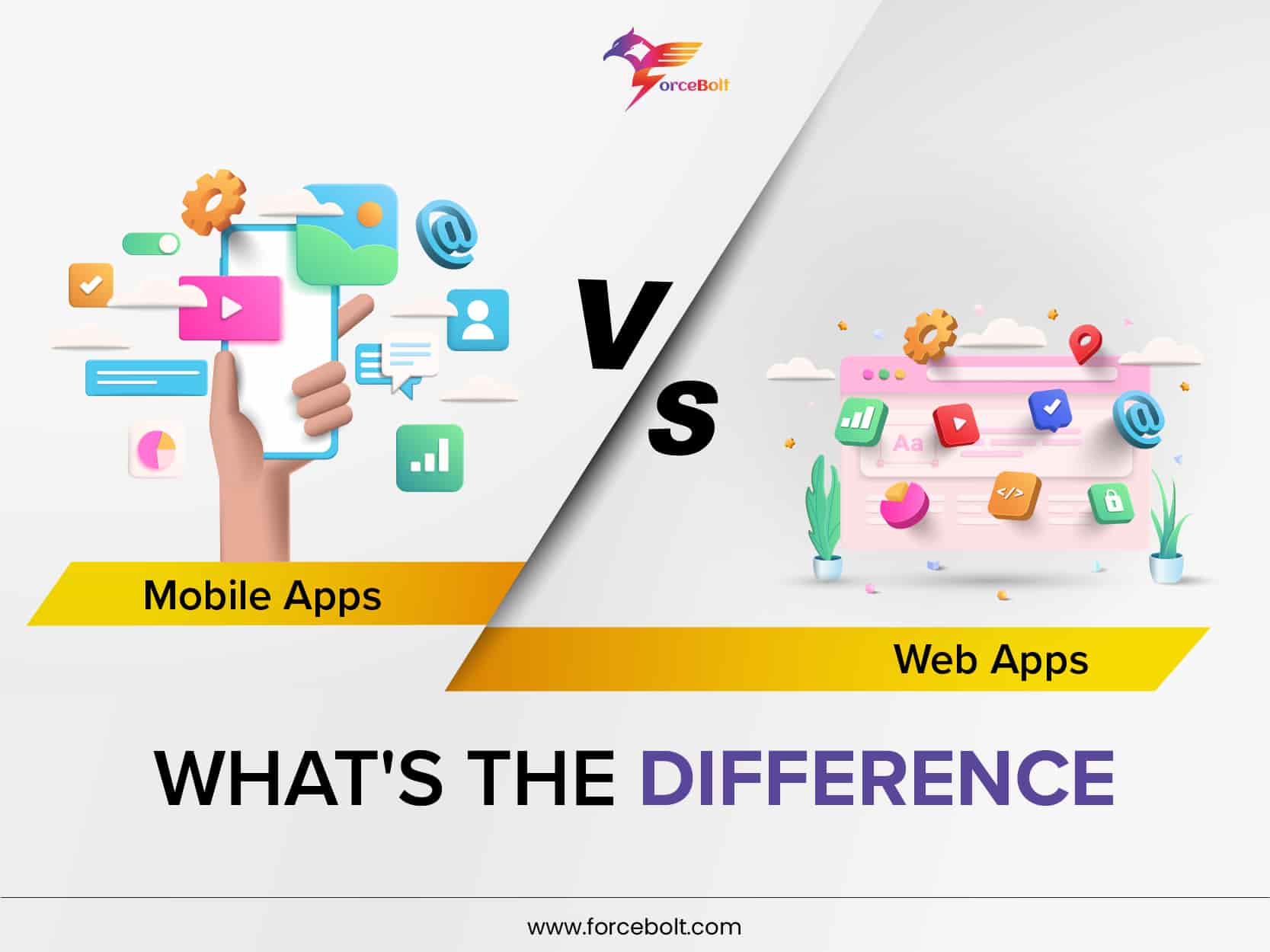Sharing is caring!
Mobile apps and Web apps, we use them daily. While going to the work, in a metro, while sipping the morning coffee or even we use them to get the work done. The apps are on the rise to save our time, money, resources, or simply put, to make our lives simpler. People across the globe are bound to using many apps in their daily lives on both mobile and desktop. However, we have seen a decline in the number of desktop users due to mobile technology but still, there are users who use web apps.
As per Statista, the number of smartphone subscriptions will grow to $ 7.7 billion by 2027. So, there is no dearth of users using mobile apps.
Mobile phones are used in almost all our daily tasks. The average time spent on mobile apps by people in US is 88 % of mobile time.
However, with rapid growth of technology, the consumers have to decide on which one they will choose the web app or mobile app? So, they ought to understand the differences between the two to arrive at a decision.
In this post, we will discuss what are mobile apps, what are web apps, and the differences between the two.
What are Mobile Apps?
Mobile apps are applications that can run on mobile devices. The apps provide a service to users. The mobile apps are mostly created for the Android or iOS platforms due to the wide user range of these two in the global market. The terms native and mobile apps are often used interchangeably. It is possible to run a mobile app without the internet connection unlike the web apps.
What are Native and Hybrid Apps?
The native apps are developed with specific development tools and using a programming language, such as Java and Kotlin or Swift or Objective-C, for Android and iOS operating systems respectively. Some of the native apps work across various OS by using cross-platform technologies.
Moreover. you can download these apps from the Google Play Store and Apple App Store and are safe and secure. Native app development results in higher reliability and better performance and this depends on the device hardware.
Hybrid app development on the otter hand is a web application that uses a native shell. However, they work on multiple OS platforms. Some of the hybrid app development platforms are React Native, Ionic, and Flutter.
What are Web Apps?
Web applications are self-sustaining software that runs on web browsers irrespective of the underneath platform. The web apps span over multiple pages or single pages. They need not be downloaded or installed in the end-user’s local machines. They are easily maintainable with a common code base irrespective of the mobile platform.
They are faster and easier to develop and update by themselves. The web apps can be used by anyone with web browser access and helps you to reach out to a wider audience. They do not require any App Store approval and can be launched quickly. There is no dependency on platform or hardware and that means reduced time to develop code when compared to writing code that needs to be migrated across multiple platforms.
Mobile Apps Vs Web Apps
We can bring out the differences based on the following:
- Functionality
- How they are built?
Functionality
Most mobile apps target focus on a single purpose. The features available in mobile apps are lesser than those of websites.
The available features are higher in number in web apps in comparison with mobile apps. One good example to cite here is Adobe Photoshop which has a web application that enables you to access the full capability of the software and delivers better user experience. But the mobile app has limited features.
How they are Built?
We have two types of mobile apps – native and hybrid. You hire a developer to build a mobile app. Anyone with programming skills can create a mobile application.
In the past, Software Development Kit (SDK) was used to develop apps for various devices. Now, languages like JavaScript are used to serve this purpose.
The native apps score over the web apps in terms of hardware accessibility and other features on your device like GPS, camera, address books, sensors and many more. The native apps are more expensive than web apps.
The Hybrid apps are more flexible in terms of construction. They use HTML5, CSS and JavaScript and are actually web apps which function and look like native apps. They are powered by internet browsers unlike native apps.
On the other hand a combination of two coding languages are used for building the web apps. These are Client-side scripting languages like JavaScript or CSS and Server-side scripting is generated using languages like Python, Objective-C, or Java. There is no SDK for web apps but there is access to templates.
The Client-side scripting languages depend on your web browser to execute various programs. The Server-side scripting manages the receiving, storing, and sending information from the browser to a server. Besides HTML is also used.
The web apps receive their input through a web form and the information is sent back to the app server, where the task gets executed. The results are then received by the browser.
Conclusion
It is important to understand which of these technologies suits your target audience. Cost-effectiveness also plays an equally important role.
If you have an idea for app development then you must contact an experienced Web and Mobile Application Development company to guide you in this decision.

Akshay Dhiman
Chief Technical Officer
The Chief Operating Officer of ForceBolt and a decisive leader who possesses a wide array of technical skills and management skills to implement operational changes by working at different levels of development. Being enthusiastic and technology proficient, he understands the importance of staying up-to-date with the latest technological transformations and provides competitive, scalable and efficient solutions. He has a good command of technical language and possesses good communication skills. Being a leader makes him a good team player, and he resonates with his priorities well.













